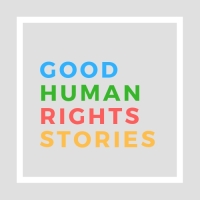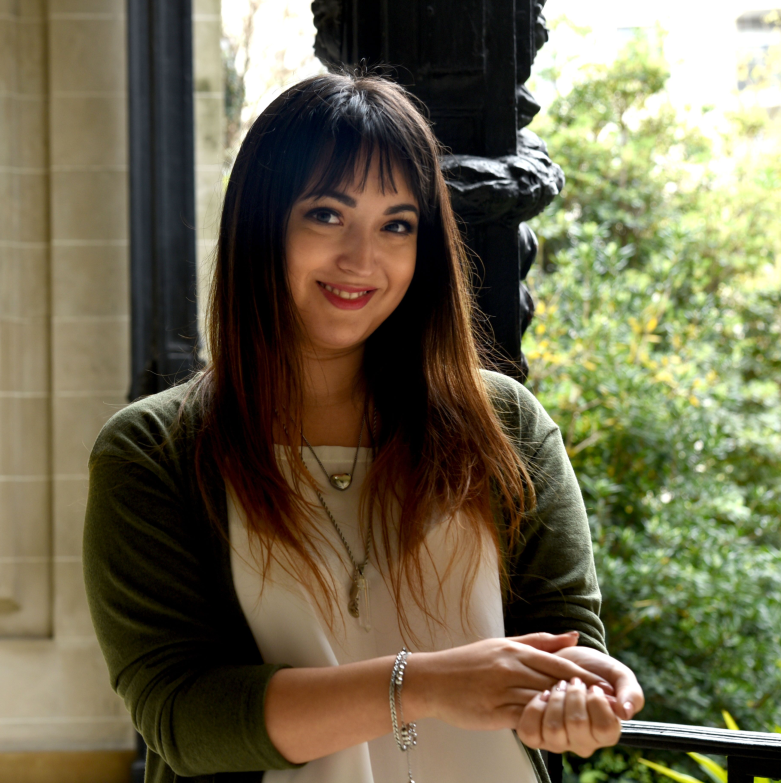Argentina

Prioritizing women’s economic autonomy through tourism ventures: FONDETUR Program
Tourism is a strategic industry for the productive development of the different regions of Argentina. The Ministry of Tourism and Sports launched the Tourism Development Fund (FONDETUR), a federal initiative that grants non-reimbursable funds for entrepreneurs to develop their tourism projects.
In order to incorporate the gender perspective into public policies, a new criterion was created for the selection of the projects, prioritizing women led-enterprises or enterprises integrated by women in order to boost their economic autonomy.
The video we are about to see shows three positive stories of women empowerment:

Firstly, the story of Lucrecia Fader, a young entrepreneur who has a venture with other women called “Yverá Adventure”, which consists of sightseeing, both on bike and kayak, in the “Esteros del Iberá” area, located in the province of Corrientes. Lucrecia and her partners applied to obtain FONDETUR funds and, thanks to the support received, they were able to remain in their town and develop their work.
Secondly, we will learn about the experience of Mabel Rodríguez, who belongs to the Qom indigenous community in the Province of Chaco. Mabel is an entrepreneur and member of the “Qomlashepi Onataxanaxaipi Association” – Women Workers of the Chaco, who make palm crafts from material collected in the Chaco forests. FONDETUR’s funds were essential for Mabel and for the women members of the Association to make progress and develop their venture.
Thirdly, we will see the story of Mara Capdevilla, an entrepreneur from Camarones, a town in the Province of Chubut with roughly 2,000 inhabitants. Mara runs a restaurant called “Alma Patagónica”, which offers typical local cuisine. Thanks to her successful experience, Mara thinks her story will encourage other people to undertake similar projects.
The National Government has increasingly promoted public policies with a gender perspective, including strategies for gender equality, such as the FONDETUR Program, which allows women across the country to carry out their projects in conditions of greater equality in their local communities, generating opportunities in all regions of Argentina.
We need to join our efforts to help women enter markets and integrate into regional and global value chains, thereby contributing to build a more inclusive trading system and to create jobs. We also consider fundamental to narrow the digital gap.
Argentina is highly committed to gender equality and to the promotion of political and economic empowerment of women, since it is a priority in its public policy agenda and in its foreign policy. Our country recognizes the fundamental role of women as agents of change to achieve sustainable development. For instance, in December 2016, the Ministry of Women, Gender and Diversity was created. In the Ministry of Foreign Affairs, International Trade and Worship, the Direction for Women and Gender Affairs was also created.
We think that the only way to achieve a truly and sustainable development is to ensure that women and men obtain equal benefits. We support the empowerment of women, the elimination of gender disparities in employment, science, technology and education, and the protection against all forms of gender violence.
Our Good Human Rights Story 2019…
Empowering women through their insertion in the digital world: Plan 111 Mil
Argentina supports the elimination of gender disparities in employment and considers fundamental to narrow the digital gap for the realization of women’s economic, social and cultural rights. Therefore we strongly promote the inclusion of women in STEAM (Science, Technology, Engineering and Math) through the creation of “Plan 111MIL”. This video shows the experience of Ana Paula (26) and Veronica (38) who were unemployed and eager to learn IT to increase their possibilities of finding a good job:
“I am a graduate of the 111 Mil Plan, thanks to which I got my first job in an information systems government agency.”
In Argentina, women´s participation in the labour market has a higher level of precariousness compared to that of males. The inequity in the distribution of the unpaid care work impacts directly and negatively on the insertion of women into the labour market, explaining in large part their low participation in relative terms and the higher unemployment rates (women’s employment rate is 43.4% while 64.1% for males). With regard to the gender pay gap, women in Argentina earn an average of 27.2% less than males in the formal sector for equal work. Similarly, the gap widens to 50 per cent when it comes to women with low or no education within the informal labor market.
Decent employment and equal access to labour markets are significant issues in order to achieve substantive equality between men and women, a cross-cutting axis of work that the current Goverment has prioritized. The only way to achieve a truly and sustainable development is to ensure that women and men enjoy real equal benefits and opportunities from work. Hence, Argentina supports the elimination of gender disparities in employment, science, technology and education in order to guarantee the full realization of women’s human rights. Taking this premise into account, the “Plan 111MIL” was created to promote the inclusion of all women in STEAM (Science, Technology, Engineering and Math).
“Plan 111mil” is a national plan developed by the Ministry of Production and Labour of Argentina that seeks to train people to meet Information Technology (IT) market demands, one of the sectors that grows and exports in our country. It also trains and certifies nationally on JAVA and SQL to work in the best companies in the sector throughout the country, and provides software development tools. There are more than 45,000 companies involved in the project.
Ana Paula (26), a psychologist student, and Veronica (38), an IT student of an Argentine public university, were unemployed and eager to learn IT to increase their possibilities of finding a good job. Verónica and Ana Paula were recommended to start “Plan 111MIL” by friends and professors. Following their advice, they registered in “Plan 111MIL” in 2017 and they graduated in 2018. This was a game-changer for them.
Ana Paula got her first job in a public agency after 3 months of graduating. After working several months as a Java Developer, she continued studying HTLM5 language which is what she is performing at work nowadays. She is very happy with the experience taking into account it was her first approach to IT and the programming world.
In the case of Verónica, after her certification, she got three job interviews and she is currently working as Analyst/ Developer in the IT area of a main Argentine retail company. She considers that Plan 111Mil was of paramount importance to get this opportunity.
Both of them were able to get good jobs and attractive opportunities in the IT field thanks to the “Plan 111MIL” training.
Our Good Human Rights Story 2018…
The Rights of migrants and refugees
Movement and displacement is deeply rooted in the history of humankind, from the time when we left our cradle in the plains of Africa. Nevertheless, in the last decades, wars, violence and persecution have been causing record numbers of displaced people worldwide. This has created a need to increase the dialogue among all actors of the international community seeking to find new global approaches to deal with refugees and migrants.
Since Argentina was born as an independent country, more than two hundred years ago, it has received from different corners of the world continuous waves of migrants and refugees. They have helped to build and reshape our society and have enriched our culture and values. This grew into a solid tradition of being an open land, welcoming and integrating refugees and migrants from all continents, religions and backgrounds. Currently, Argentina continuous to receive flows of migrants and refugees from Latin America and other regions, including Syria.
Therefore, Argentina took a strong commitment to uphold the principle of responsibility sharing when it comes to provide a home to those who fled their countries of origin, giving them the needed peace to restart their lives. It has put in place specific mechanisms to provide assistance and support to refugees leaving their countries due to war, violence or conflicts.
One of Argentina’s Good Human Rights Story focuses on the life of Hanen, a Syrian refugee that reached Argentina with her family fleeing the war on her country. She received a “humanitarian visa” under a Program implemented by the Government of Argentina aimed at helping people affected by the conflict in Syria. Hanen moved to Argentina to rebuild her life, what she was seeking was an opportunity to live in peace.
Hanen says that she “no longer had to listen to bombs every day and she is not terrified of going out into the street”. She has been in Argentina for two years now, dealing with different challenges related to work and language, which are important components of the integration into a new society. In the video you will have the chance to listen to her testimony and life experience.
The refugee and migration policy of Argentina is in line with its full commitment in the promotion and protection of all human rights. For that same reason, it has ratified all relevant regional and international treaties related to refugees and migrants. Freedom, solidarity and democracy, among others, are values reinforced and protected by the Argentine Government. Diversity and multiculturalism are salient characteristics of our society as well as a source of pride for all our people. Presenting the voice of Hanen at t could help to recall the importance of making the commitment of leaving no one behind a true reality and open hearts and countries to those fleeing their homes because of war and violence.
The story of Hanen
The story of Omar


